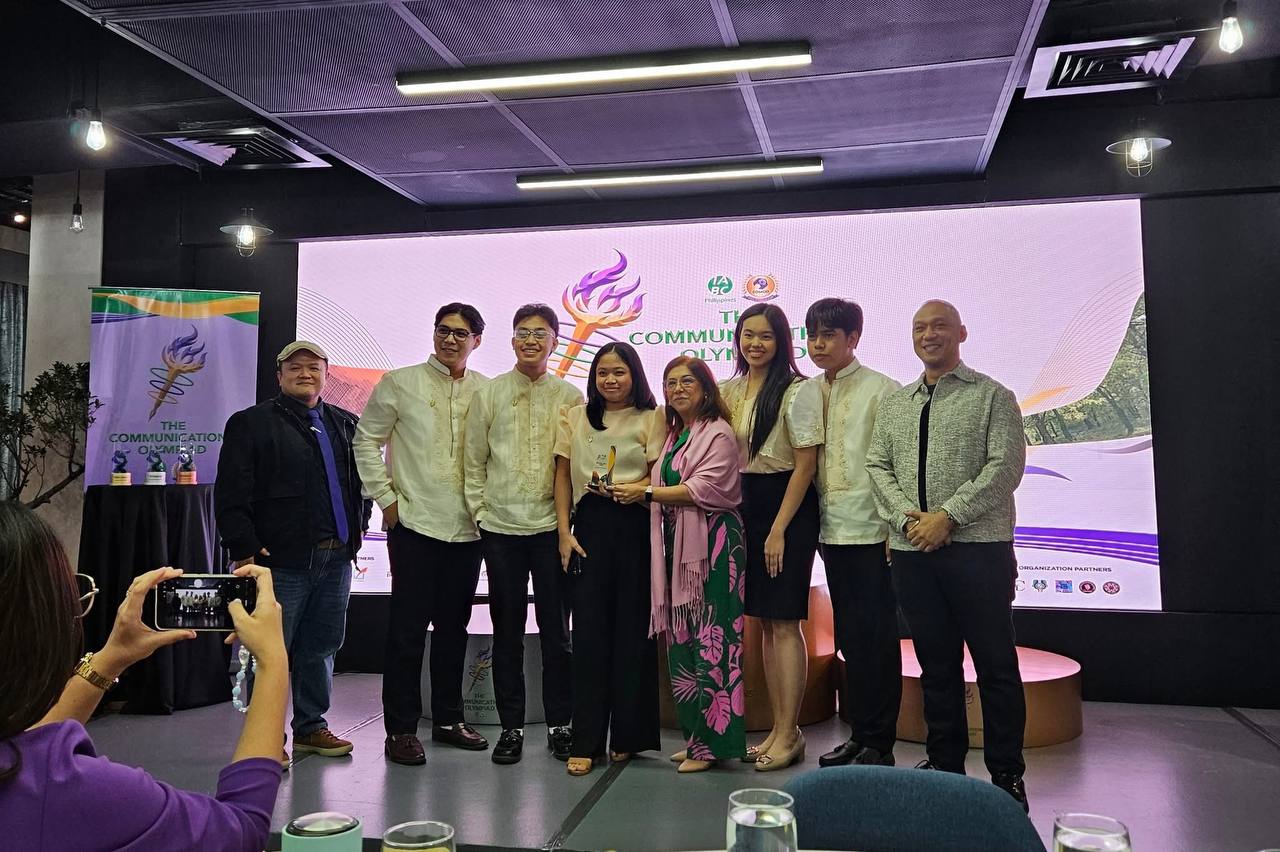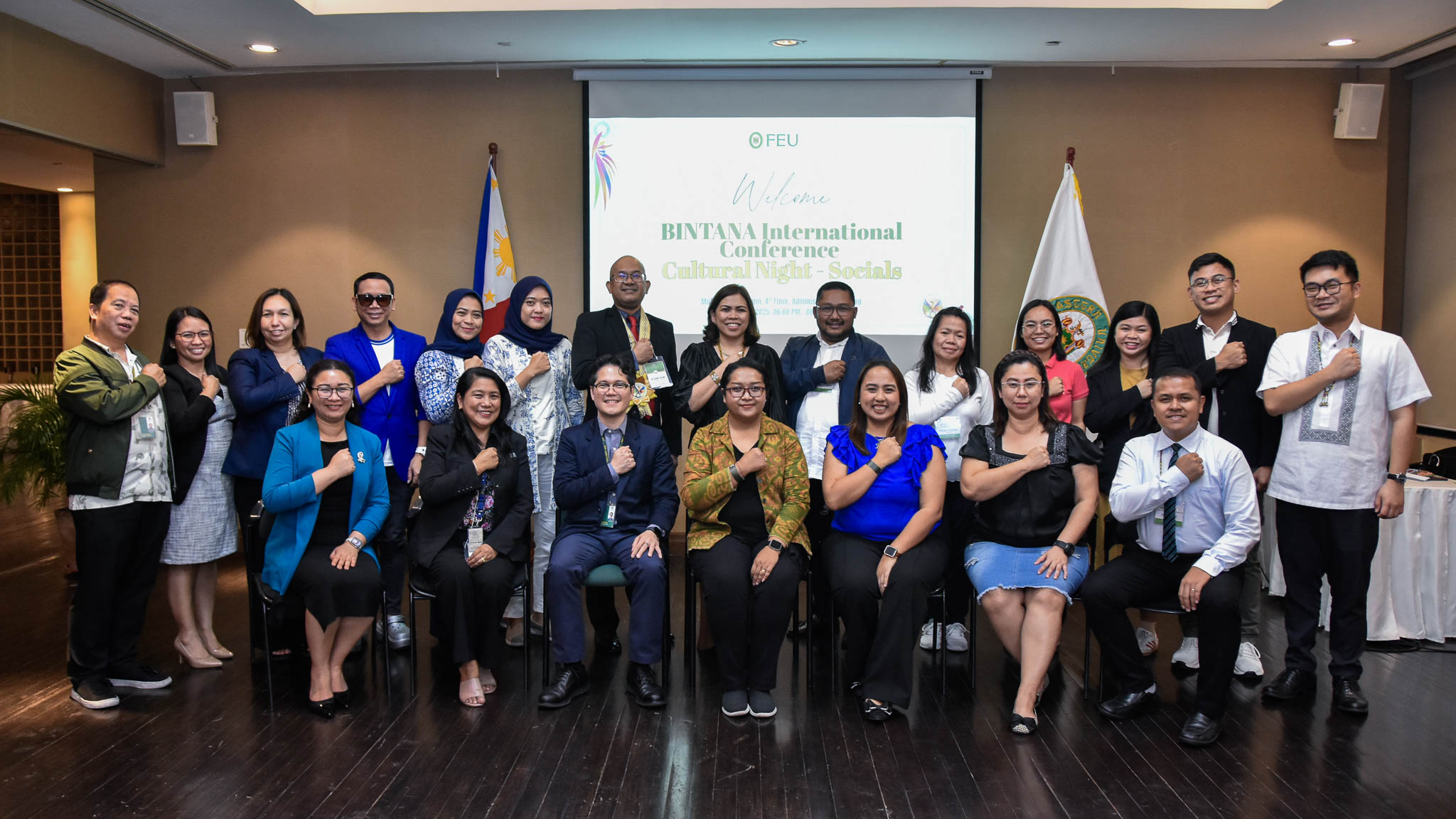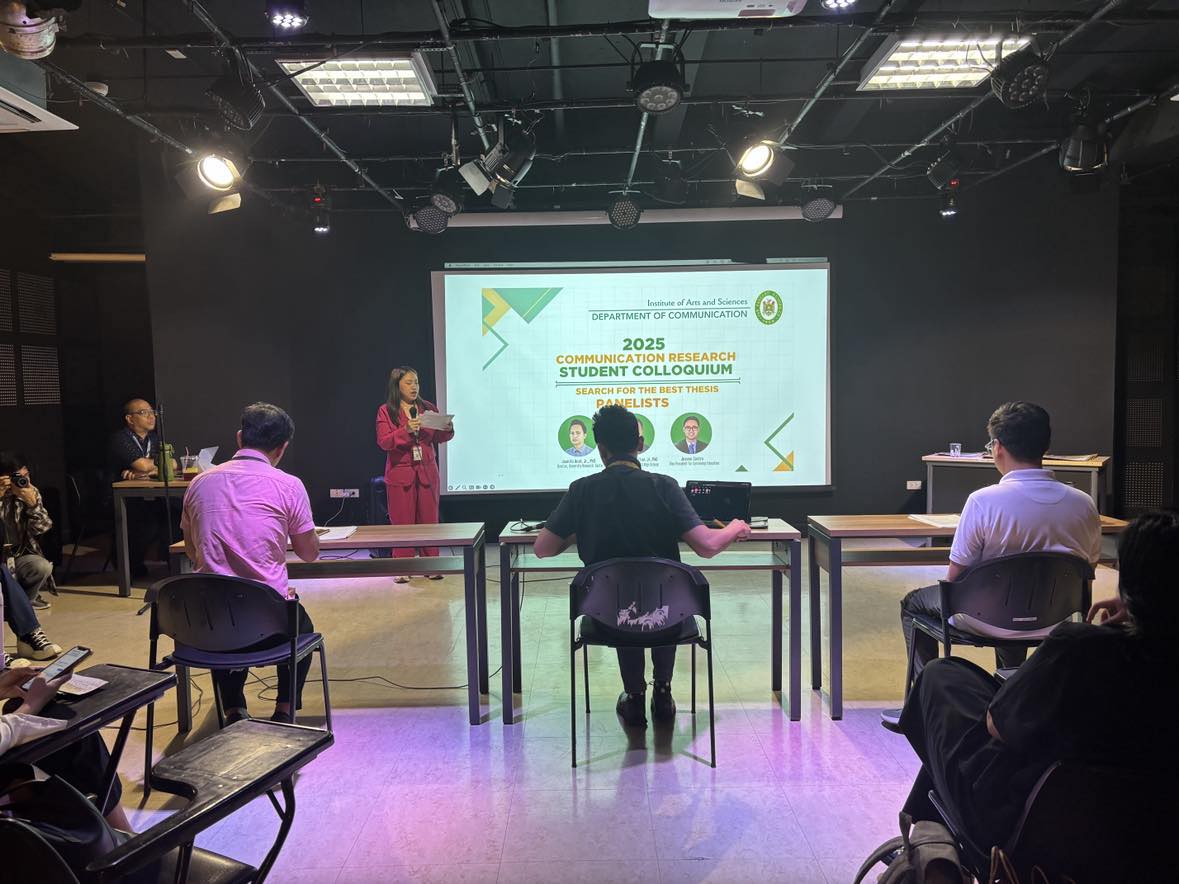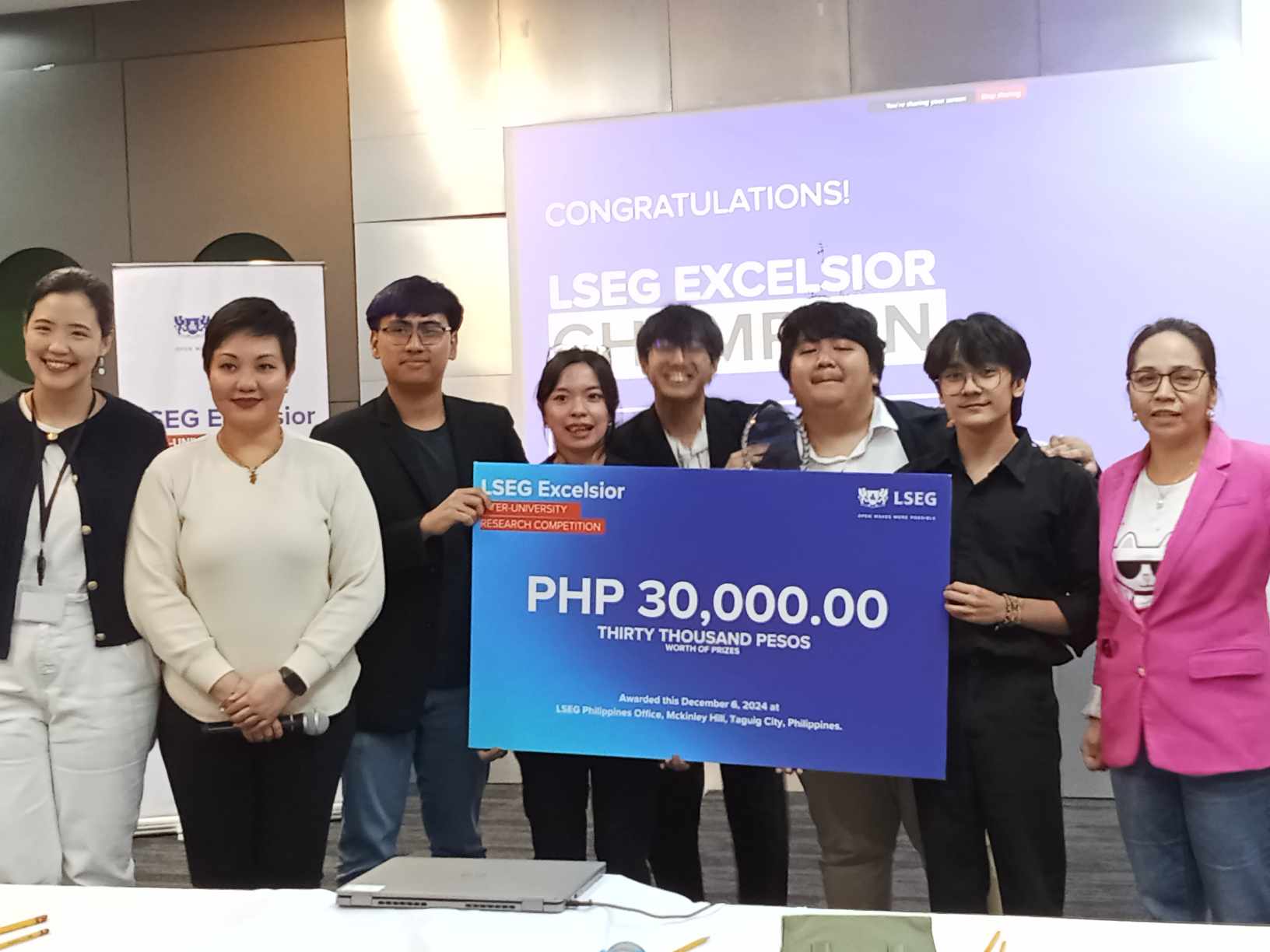A graduation photo of Maria Y. Orosa (seated, right). Photo from the Orosa family.
Through “Engaging the ‘Feminine’ Form of Heroism: A Historical Survey of the Life and Career of Maria Orosa,” Leo Angelo Nery delved into the story of Maria Orosa
This lecture attracted a diverse audience of students and faculty members eager to uncover the often-overlooked contributions of this World War II hero, scientist, and feminist.
In a world where heroism has typically been associated with masculine virtues, Orosa emerges as a beacon of feminine strength and resilience. While recounting her extraordinary life, the lecture shed light on Orosa’s multifaceted heroism, which transcended traditional gender norms. As the primary breadwinner for her family, Orosa pursued her studies and career overseas, defying societal expectations.
Moreover, her groundbreaking work in food preservation, including innovative techniques like canning, revolutionized the way communities sustained themselves during times of scarcity and conflict. Notably, Orosa’s invention of the Palayok Oven, a device capable of baking without electricity, epitomized her ingenuity and resourcefulness in the face of adversity.
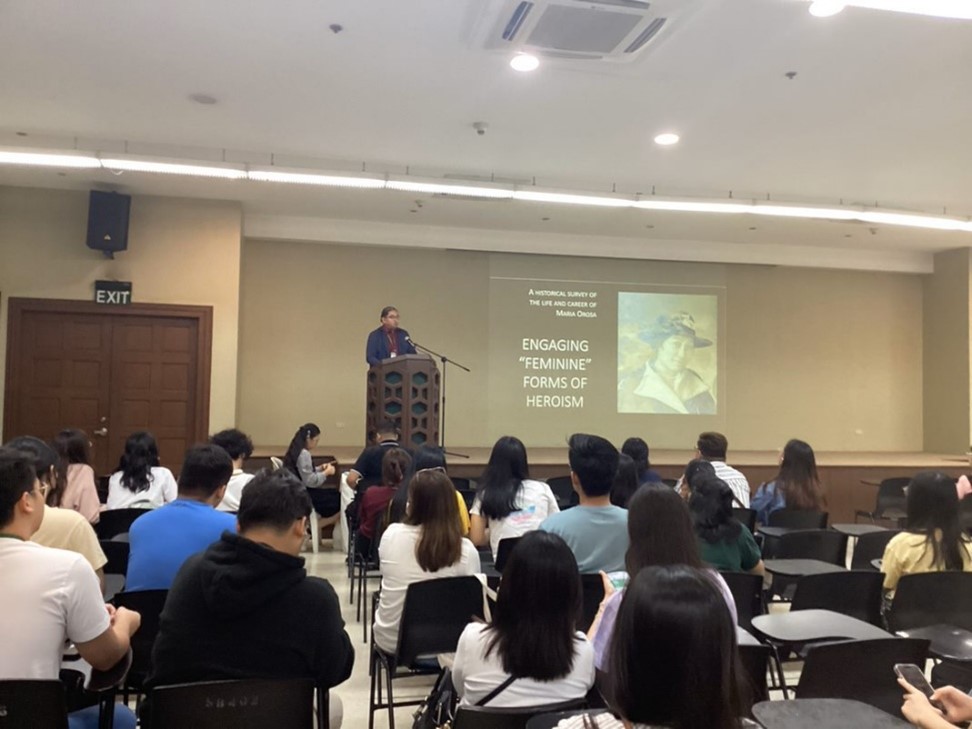
Orosa’s legacy challenges conventional notions of heroism, demonstrating that courage and innovation know no gender boundaries. Through her pioneering efforts in both history and science, she left an indelible mark on society, reshaping the course of events and inspiring future generations to embrace the power of diversity and inclusion in their pursuit of greatness.
Nery is an educator at Far Eastern University and a doctoral candidate in history at the University of New South Wales, Sydney,

